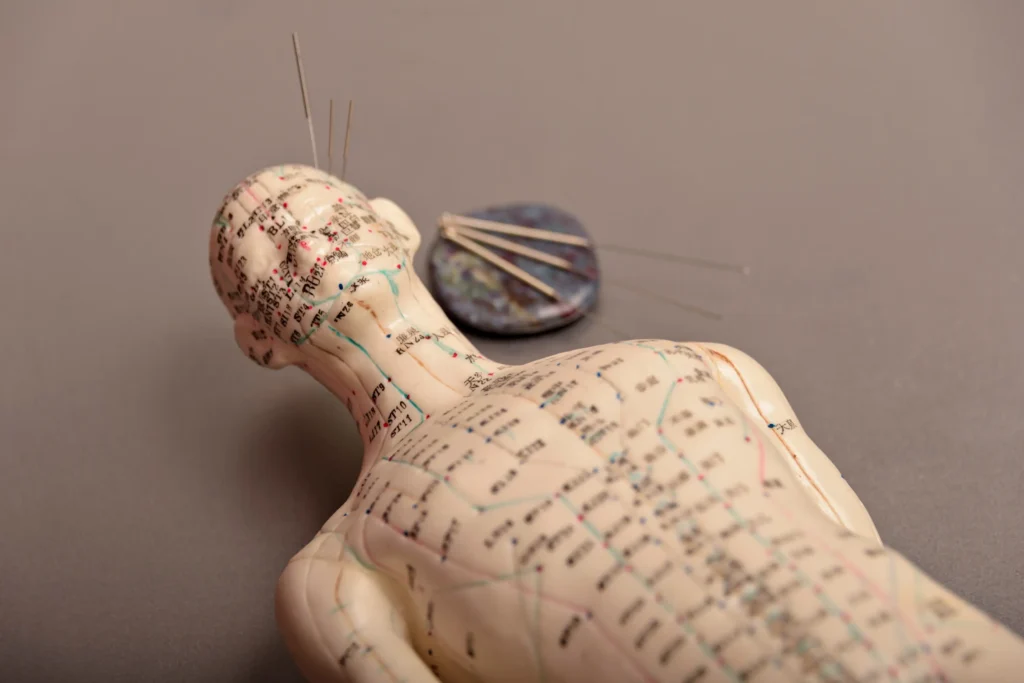Dating its heritage to traditional Chinese practices in medicine, acupuncture refers to a medical practice that involves inserting needles in pressure points or energy pathways throughout the body.
The practice leans on the belief that energy follows certain pathways throughout the human body.
The practice implies that driving very small needles along those pathways or pressure points triggers different functions related to the Central Nervous system.
This goes on to explain the effectiveness of acupuncture in addressing several health issues including muscle spasms, stress, and pain.
This effect can be attributed to the ability of acupuncture to control autonomic functions for instance digestion, blood pressure, breathing, and heartbeat.

Acupuncture treatment explained
This discussion aims to delve our attention to the effectiveness of acupuncture in the modulation of this critical system.
Central Autonomic Modulation
The Autonomic Nervous System, ANS is a combination of nerves that modulate involuntary body functions including sleep, calmness, fight, digestive process, and flight. The system further categorizes into sympathetic and parasympathetic nervous systems. The Sympathetic Nervous System, SNS, is tasked with increased heartbeats, breathing rates, blood pressure, and the distribution of blood together with other nutrients to all muscles. These activities are aimed at preparing you to either stay put and fight or flee the hazardous scene whenever you are in danger.
The Parasympathetic Nervous System, PNS, conversely reduces blood circulation, heartbeats, and breathing rates thereby bringing your body to rest mode and enhanced digestion whenever you are struggling with traumatic experiences. In this mode, the body relaxes while triggering an enhanced digestive process coupled with the storage of more energy for future use
Mechanisms of Acupuncture in Modulating ANS
Even though ANS is designed to automatically adjust the SNS and PNS, the functions may sometimes last longer than they are needed. For instance, if the trauma is so intense, some people may become stuck in PNS functions like rest until they fall into chronic stress and ultimately depression. Similarly, if SNS functions like increased heartbeats and breathing rates take longer than needed, they may contribute to health issues like anxiety and increased pressure of blood. This is where acupuncture comes in handy. By inserting needles along the nervous pathways and energy points, the therapist triggers the SNS and PNS functions thereby creating a balance between these two.
Through the placement of needles, certain brain parts for instance the hypothalamus which is intertwined with the CNS are modulated thereby triggering the production of neurotransmitters including endorphins and norepinephrine. Significant evidence from various studies seem to suggest that these neurotransmitters trigger autonomous responses to external forces like danger and trauma.
Clinical Effectiveness of Acupuncture in Modulating ANS
The clinical benefits associated with acupuncture in the modulation of ANS are all about balancing the SNS and PNS.
Cardiovascular System
Clinical study evidences seem to support the ability of acupuncture in making parasympathetic functions overshadow sympathetic functions. The benefit is felt in the reduced heartbeats and breathing rates, thus making the patient calm and relaxed. This explains the common effect of calmness and relaxation experienced by people who seek acupuncture for cardiovascular conditions like increased blood circulation.
Trauma and Anxiety
Stress or anxiety come when the body remains in the sympathetic mode for instance increased heartbeats and breathing rates for an extended period. As a remedy for stress, acupuncture works by reigning the PNS over the SNS through increased production of neurotransmitter endorphin that contributes to lowered heartbeats and breathing rates.
Gastrointestinal Function
By strengthening the parasympathetic more than the sympathetic systems, acupuncture can aid in modulating digestive processes while improving gastrointestinal motility. This explains some recorded effects of acupuncture; enhanced digestion.
Pain Modulation
Pains, especially when they escalate from common to chronic, can cause adverse bodily and emotional effects. For common pains, people tend to go for over-the-counter pills while chronic pains are treated with opioids. However, people have discovered a risk-free and long-term solution for chronic pain; acupuncture. Sympathetic functions like increased heartbeats and breathing rates are linked to exacerbated pains. Acupuncture helps in the management and treatment of the effects of pain by strengthening parasympathetic functions more than sympathetic activities.
Acupuncture provides a risk-free alternative to commercial medication and invasive treatment of several health conditions linked to the ANS. You may experience some mild pains coupled with bits of bleeding around insertion points. On the extreme, you may experience increased bleeding and severe pains. However, this happens when you meet a quack. This goes on to stress on the critical need for conducting a thorough evaluation of an acupuncturist’s license and experience in the field.

